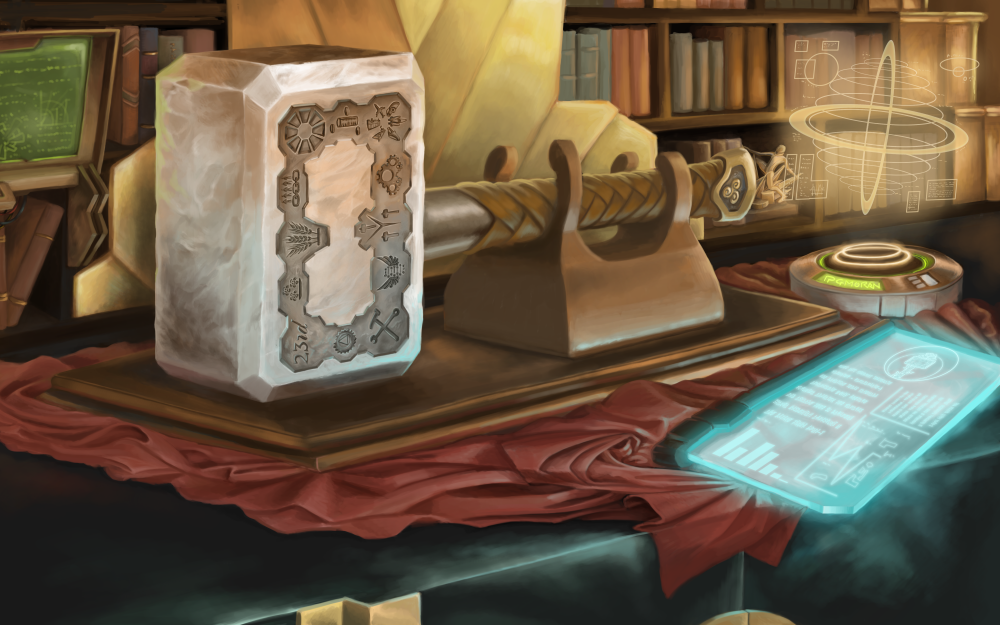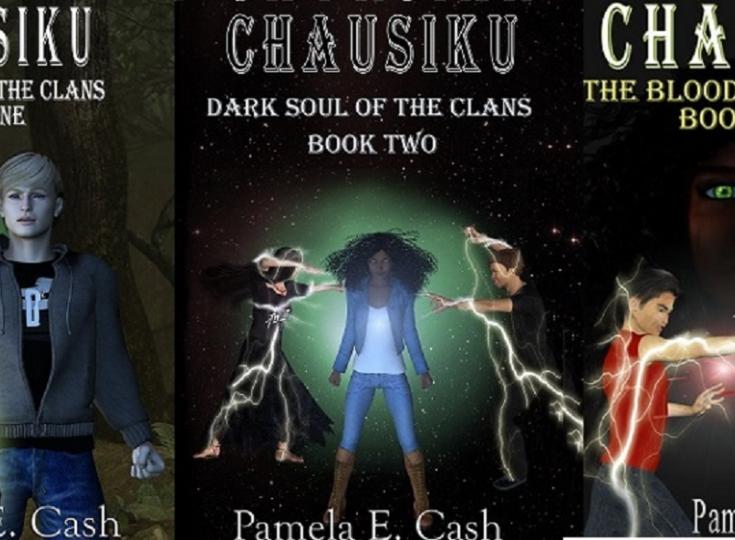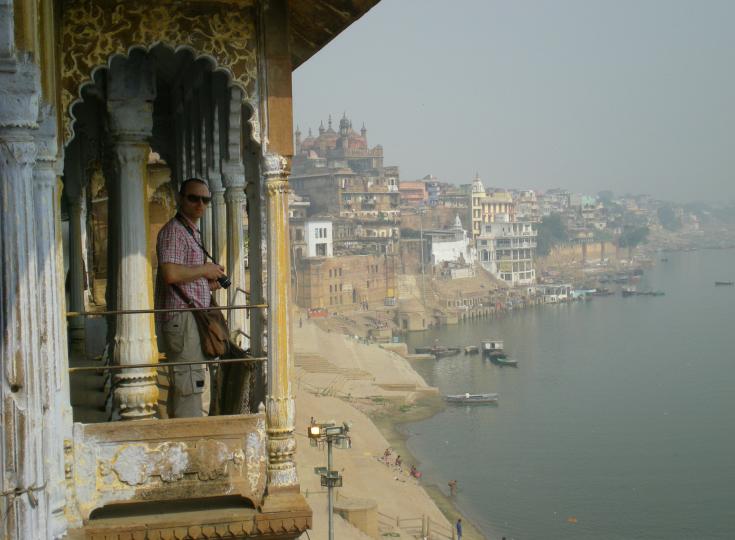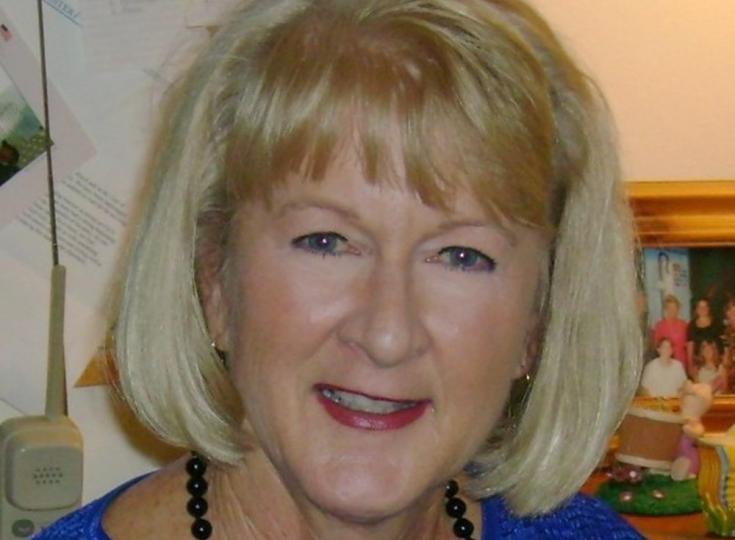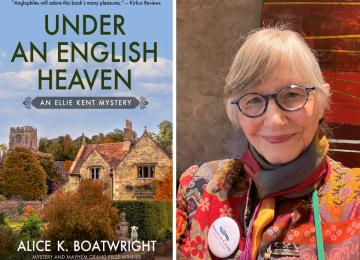Anthony Almato - Corruption and Colonization in a Distant Future
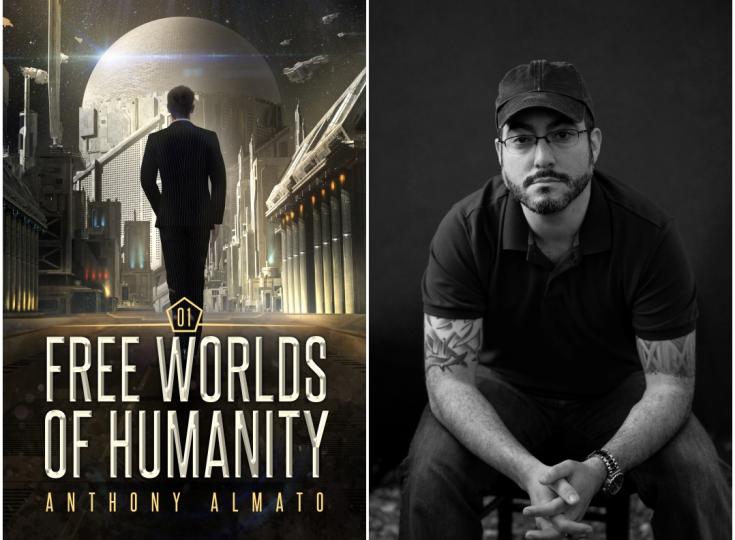
Anthony Almato doesn’t think of himself as an author, and Free Worlds of Humanity began as a video game concept before taking its current form. Having survived nearly insurmountable challenges during childhood and adolescence, in addition to his former careers as a professional gamer and a corrections officer, Almato uses his personal experiences to breathe life into his stories. When he isn’t writing, he can be found snowboarding, smoking cigars and enjoying the company of his wife and children. Anthony has lived with Type One Diabetes for over 30 years. As our Author of the Day, he tells us about his book, Free Worlds of Humanity.
Please give us a short introduction to what Free Worlds of Humanity is about.
Humanity. A word that should be described as compassionate, sympathetic or generous. For occupied space, it’s a fickle word used by fickle men to describe a better state of being that is nothing more than an illusion. Humanity is human sanity. Like most things, it is a construct.
In the Great Darkness, humanity fled with the light. Some humans shed it for technological advancements, others for power through brute strength, and a few simply evolved beyond it. When the light returned, only a shred of humanity returned with it. As the new civilizations of the Free Worlds rose and were corrupted, their very humanity was quickly forgotten.
But in the colonized planets forming the Free Worlds of Humanity, not everyone is free. A select few live in luxury—politicians and socialites— influencing the masses through lies and deceit. Henry McWright of the Colonial Accord, the greatest politician in recent history and revered within the highest caste, uses mafia and guerrilla tactics to secure more power, cinching the noose tighter. Almost no one knows of his darker side and vices that grow more unsettling with each page.
another level of society is filled with the lies of those in power as well as secrets of its own. Women like Isabel Sideris hide in it. Those who initially ran from their pasts now have no choice but to plan the toppling of a planet that squeezes its people into submission. Bound by the legacy of her family name, through her father and her husband, as well as the children that she’s protecting, Isabel never had a chance at a different life. She had tried to protect her children and run from a life as a resistance leader and is now thrust back into it. Isabel has no choice but to push forward into the future.
The third class of citizenry is for people like Mace Applegate, intelligent and high-ranking employees of expansive corporations. Even with their strict rules and regulations, his life is without hardship—until his wife’s unauthorized pregnancy. He’s forced to steal company secrets and flee to survive. On the run, he’s pursued by killers—but perhaps it’s not him they’re chasing.
On Civil Earth, the fourth and final caste is the lowest of all—those who are left to die. But Kathryn will never die—not if she can help it. A survivor from the wastelands, where the very air is poison, she’s one of the undesirables. Her enemies underestimate her. Their mistake. She is one of the few martial artists who can perform Agamo Verk, a lost art from before the Great Darkness, and her enemies often pay with their teeth. But as she climbs higher on the rungs of the system and has the opportunity to escape the city, she’ll take it with her teeth bared.
The only way to escape the Free World’s societal casting is by becoming a soldier of some kind, but even the military has its own status. Exhausted soldiers like Askar wish for death but are bound by duty, valor, and glory, and to ever reach purposefully for it. Cursed with a long memory and advanced fighting techniques, he may never die. And that scares him more than any enemy. But taking on a mission to find Mace Applegate for his Force Command will bring him closer to death than any crusade.
Freedom. Like all statuses and systems, it’s a fickle thing. And now that the first dominoes have fallen, it’s only a matter of time before another darkness consumes the whole of humanity.
What inspired you to create a story featuring colonized planets?
The entire concept for Free Worlds of Humanity was started in the year 2000 when I was a junior in high school. I wanted to create a real-time strategy video game and tabletop game with a vast construct of world-building lore. It started as artwork and grew on and off for twenty years, where I would spend a few weeks to a month on concepts and creative thought… almost like a hobby of sorts. Somewhere around the year 2016, over 300 pages of detail were sitting in a box collecting dust as my wife and I moved into our new home. She had no idea that I spent so much time on the story concepts and stumbled upon the container in our basement one day. She was amazed at the level of detail and just how much of it there was. I had no intention of doing anything further with all those pages, but my wife insisted that I do something. I shugged, and she suggested that I write a book. It took three years of daily writing, rewriting and editing, but the finished product speaks for itself. I won’t take all the credit. Without my amazing wife to push me, this would have never happened. Also, I worked with very professional editors and developmental experts who assisted with molding and reshaping to create Free Worlds of Humanity in its current form.
You originally wrote this a video game concept. How did this influence the way the story was written?
Video games in my youth played a major role in youth. I have two parts to this answer because, first and foremost, people who don’t play video games wouldn’t realize that amazing creativity and development go into the stories within single-player games. Amazing plots that compare to some of the best book/TV series come from the teams who spend years making these games. Some of those storylines helped my concepts for Free Worlds. The second part of this answer is that I spent a few years playing in world qualifiers and national events on the professional circuit. The professional nature of attempting to be better than the competition and pushing myself to a level that would exceed any expectation influenced my writing style heavily.
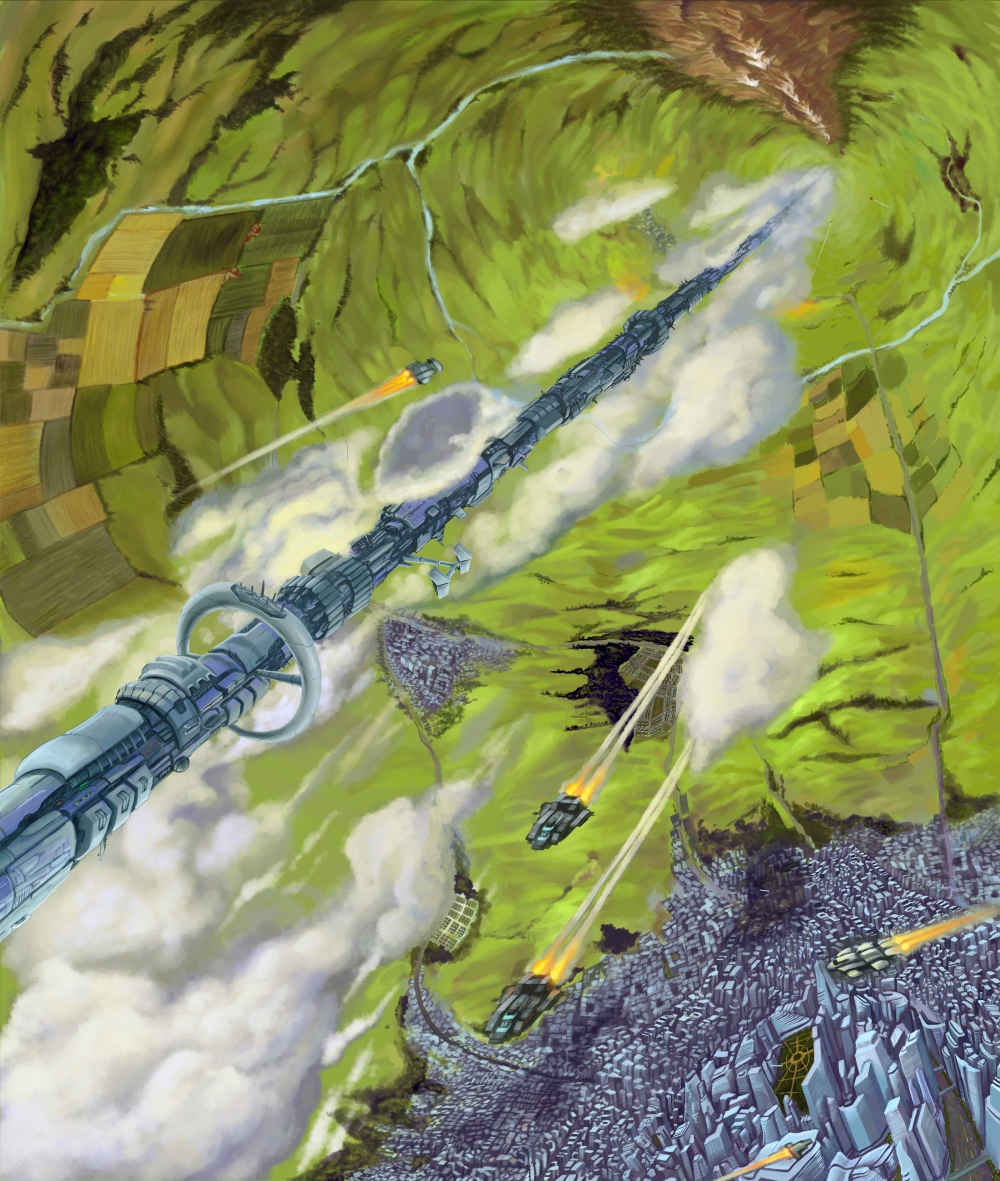
You opted for a multiple-perspective narrative. Why did you take this approach?
The answer to this is funny to me, personally. I suffered from a learning disability (classified ADHD and an unspecified additional diagnosis) that made it difficult to hunker down and focus for long periods of time. When I started writing Free Worlds, I shifted from one idea to the next. Because of that, my first draft was a hot mess… like most authors, but I promise the story is well structured now. Occupied space where all air-breathing worlds are is full of humanity spread through numerous planets. The Free Worlds make up five governing societies that left the Great Darkness and rediscovered technology. Because of the backbone of this story, different things are happening across light-years that would be impossible to add on without additional points of view. The story is well contained, even with five main points of view and doesn’t drift off to confuse readers.
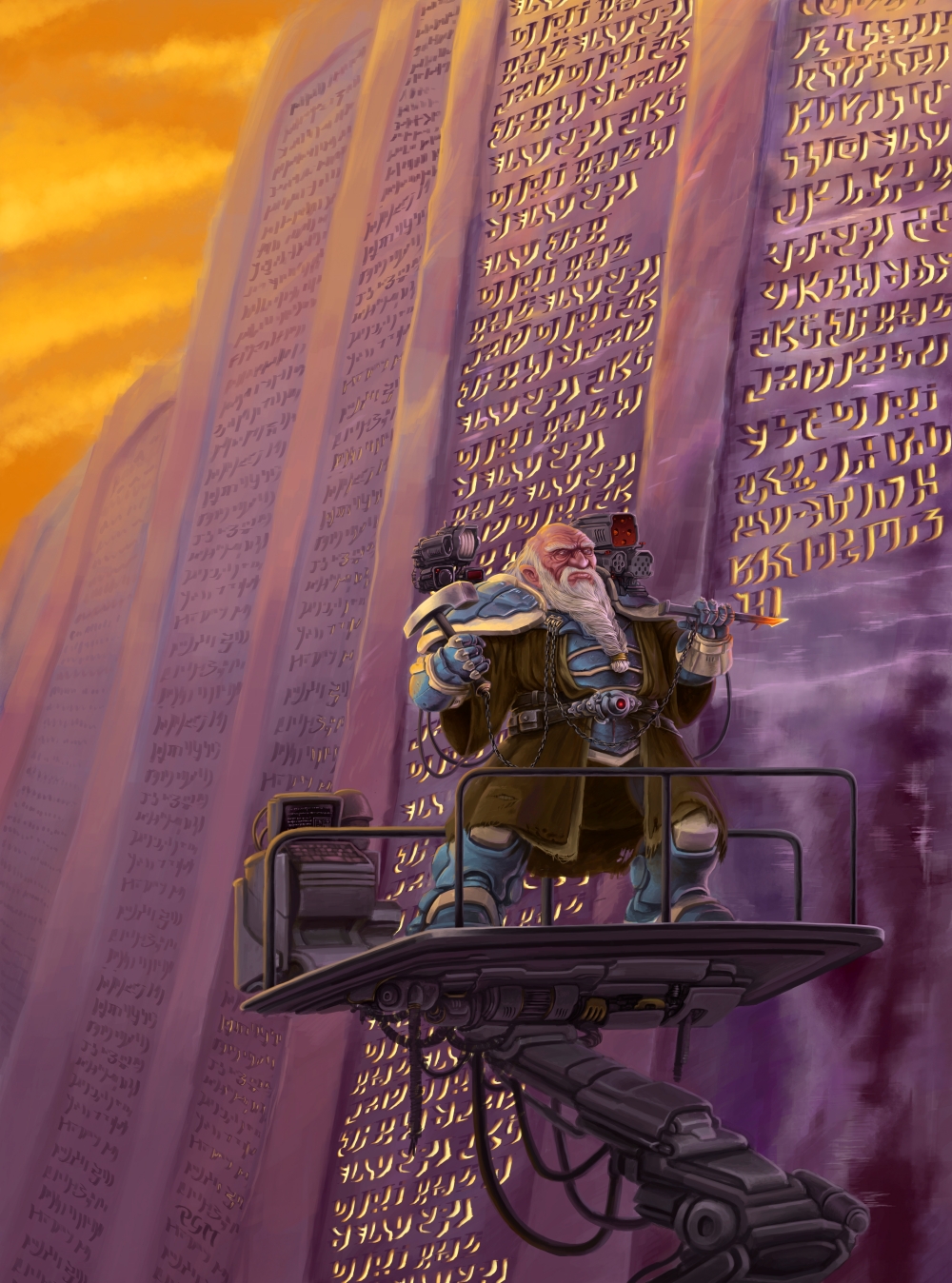
Free Worlds of Humanity includes themes like corruption, weaponized interplanetary space travel, and colonization - why did you want to explore these topics?
Our real-world history is full of amazing and dreadful stories. I tried to imagine how our current political climate (in the year 2017-18-19) would look where we had the technology we didn’t fully understand and lived on a few hundred planets. I attempted to picture European boats on the coast of central/south America for the first time and how that played out. If we were spread among 200 or so planets and lost all our technology only to rediscover some of those advancements and then venture out into space again to find ourselves in a less technological state, how would we act? What would we do? I chose to write it from a darker perspective because real life isn’t full of roses and butterflies… it’s blood, sweat and tears. I wanted to place characters that people could fall in love with and really care about into a dark and twisted existence that has no remorse for those who can’t defend themselves.
Besides writing, what other secret skills do you have?
I can juggle, lol. I love snowboarding, once and a while playing piano, and well… I guess that’s it.
How much of your own personal life experiences have you written into this book?
A lot! I worked in a correctional facility for a few years in my early twenties on the MCU (management control unit.) This is where the most violent offenders, those on disciplinary and sexual offenders, resided. It was a direct supervision facility, so I spent hours within feet of these people talking to them. I still believe in second chances and true rehabilitation, but that concept has no bearing on the truly evil personalities I was with daily. I wondered something while writing Free Worlds… what if these types of people were the ones in total control of society? A society that had technology more advanced than our current understanding. What if they were the ones in control of everything? Read Free Worlds, and you’ll find out 😊
Some readers were surprised by the level of immersion they experienced with your characters. How did you make them so relatable?
The answer to this question is quite silly. Method acting. On a given day of writing a specific POV, I would flip a switch in my head and become that character for the entire day. Every thought I had, every action I took during the whole day, would be through the perspective of the person I was writing on that given day. Seriously. I literally would go to get coffee from the store while speaking and acting specifically like the given characters; Henry, Isabel, Mace, Kathryn, Askar. You could ask my wife how fun it was when I spoke to her with a Dolrinion sentinel voice of a 63-year-old stubborn and depressed war veteran.
I think pushing myself to this extreme made the characters more real. Even people who aren’t fans of science fiction that have read my book said they felt like the characters were people they knew in real life. My primary focus wasn’t the science fiction aspect; that was only a backdrop. The character development and their struggles mattered more for my writing style.
As a video game, what genre did you envision this as, and would you make all of your main protagonists playable, or would some of them be NPCs?
I gave a little bit of this answer earlier and can elaborate more on this question. My original concepts were for a real-time strategy game, similar to Command and Conquer or Sid Meyers Civilization. In the early 2000s, these types of games had cut scenes with story development identical to a tv show. Famous actors like George Takei, James Earl Jones, and Michale Biehn acted and gave a vast understanding of the world-building within these games. I went off that idea and built on my own designs. Years later, I thought a role-playing game with amazing vast worlds on the same level as Guild Wars or Lord of the Rings online would have been amazing. Even tabletop games based on Free Worlds’ story lore and extensive detail would be really cool.
What are you working on right now?
Another book within this series was just released on January 29th. Free Worlds of Humanity 1.5: Short Stories from the Free Worlds. It builds more on the story lore and world-building to show specific areas from book one in greater detail. 1.5 is a novella, and some of the events coincide with specific chapters from book one to give additional details or another perspective on the events. Caste Systems play a big part in Free Worlds—societies built like a pyramid where the rich see those below as mindless herds that need to be guided regardless of how dangerous their decisions are.
I also finished the final draft book two last month, Free Worlds of Humanity 2.0: Tensions Rising. That one will be off to the editors in a few months to start part of writing a book that burns the most… cutting… cutting… and tweaking over and over. Hah.
I also started the next book after that, which is another novella—for now, we will only call that one 2.5 😊
Where can our readers discover more of your work or interact with you?
My website and story lore wiki pages are good places to start:
www.anthonyalmato.com and www.freeworldsofhumanity.com
Thank you so much for taking the time to read this!
